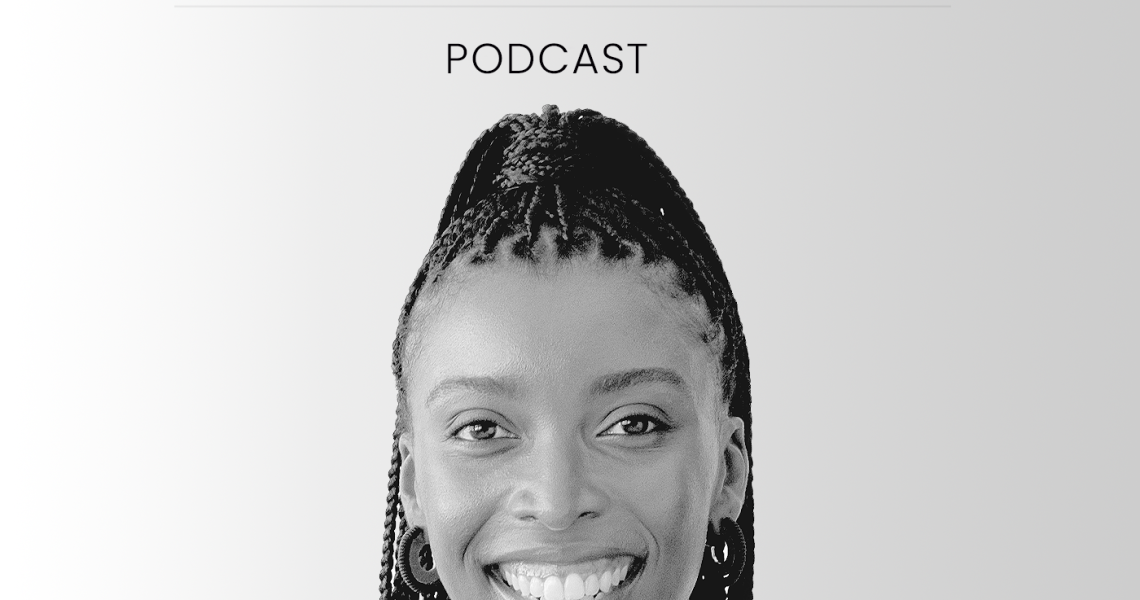This is an episode of the Glossy Fashion Podcast, which features candid conversations about how today’s trends are shaping the future of the fashion industry. More from the series →
Subscribe: Apple Podcasts • Spotify
After returning from a trip to South Africa, The Folklore’s Amira Rasool was often stopped on the streets of New York and asked where she purchased her clothing, which she scored while abroad.
“I knew that African and Black-owned brands were the future because people were getting bored of the same old [stuff],” said Rasool, founder and CEO of The Folklore, on the latest episode of the Glossy Podcast. “These brands have a cultural and heritage point-of-view that shines through in their products.”
With research, Rasool discovered that most African brands did not have direct-to-consumer e-commerce platforms of their own and were not stocked in retail stores outside of their home country. Rasool launched The Folklore in 2018 as the first B2B wholesale e-commerce platform exclusively focused on Black-owned and African brands.
“Combining my interest and knowledge of Black history and uplifting Black people in our socio-economic condition with my love for styling and telling stories, I created The Folklore,” said Rasool. “We built this product with African and Black-owned brands at the forefront and not as an afterthought.”
The company’s designers are based in South Africa and Nigeria, but The Folklore is also developing relationships with brands in Ghana and Morocco. In addition, by September, the company is working to launch Folklore Connect, a B2B wholesale e-commerce platform that empowers global retailers to discover and shop for African and Black-owned fashion and lifestyle brands. The company’s current focus is on apparel, accessories, home and beauty, but will soon expand to new product categories and price points.
“With our curation, we still have the potential [to on-board] thousands of brands to the platform,” said Rasool. “We haven’t even scratched the surface.”
Below are additional highlights from the conversation, which have been lightly edited for clarity.
Building relationships
“Being [in Africa] was important. While I was there, I flew to Lagos Fashion Design Week [in Nigeria], before [The Folklore] launched, and met designers that way. I would meet designers by going into their boutiques and they would introduce me to other people. It was important for [designers] to know that I wasn’t just coming in to make a bunch of money off of them, [but instead that] I wanted to help them build businesses. The focus of The Folklore is to build social and economic opportunities for African and Black people. [It’s about] being able to increase the number of exports coming out of the continent, increase the number of jobs on the continent and [support] the overall [African] economy”
Bridging a gap between brands and buyers
“[The Folklore is] here to unlock the global opportunity for [brands]. For African designers, it’s important to have people on the ground [in the U.S.]. Even for our designers that are in the diaspora — we work with several Black-owned brands based in the U.S. or the U.K. that can physically be here, but still don’t have access to a buyer at Nordstrom or even access to the trendy local boutique. [The Folklore] is the bridge to help [African brands] get to people they don’t have access to, even if they are [already] on the ground.”
The road to funding
“Raising capital didn’t come easier for me than most because I am Black and a woman. I tried to initially raise when I first started the business and I didn’t know what I was doing. This isn’t the background that I came from, and you also don’t learn how to raise capital in high school or even college. I was trying to beg people for money, and I realized that it wasn’t working.
When I got into Techstars Seattle, which is a tech accelerator that has cohorts around the world, I was able to learn how to properly fundraise and do it well. I now understand that it’s about who I’m speaking to and not wasting time with investors that don’t invest in this space or with someone who is going to be difficult [to get a] ‘yes’ from. I also [learned the importance of] knowing what your timeline is, keeping to that timeline and [being able to] tell a great story. I was able to hone [my storytelling] skills while I was at Techstars.”




